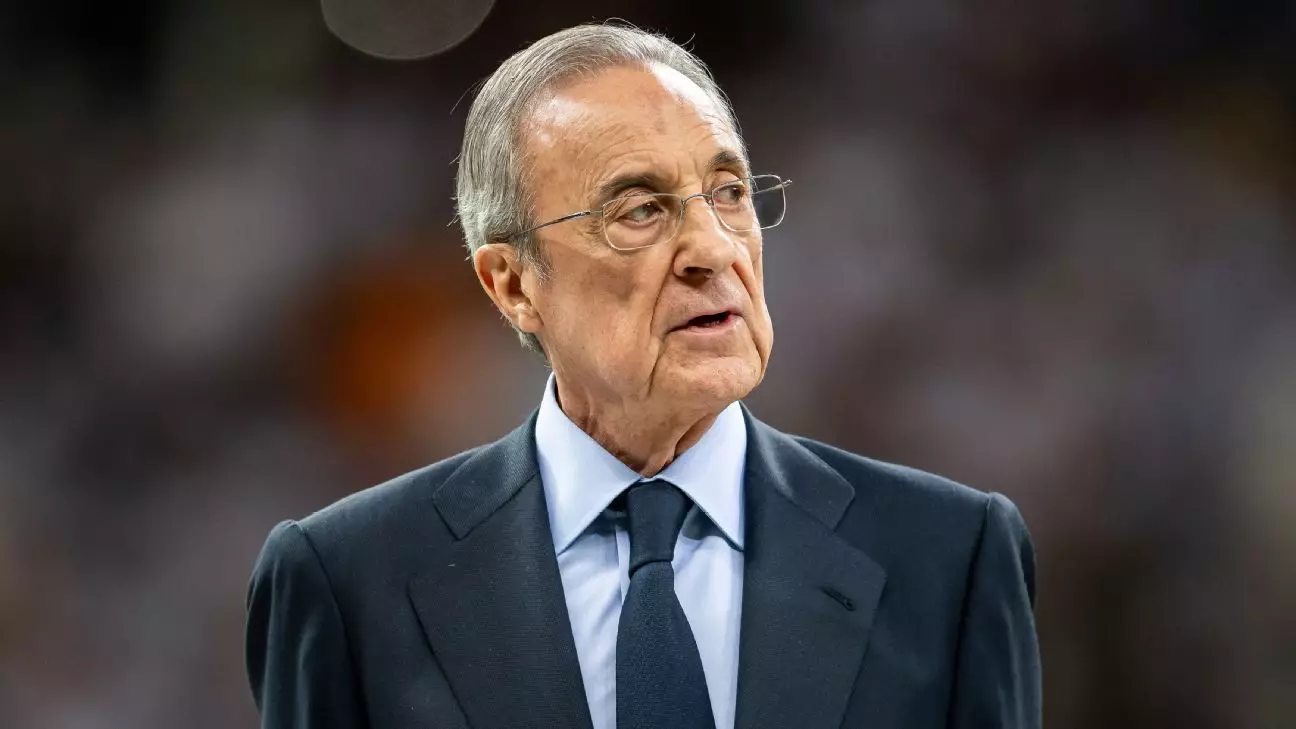Real Madrid, one of the most storied and successful football clubs in history, is at a crossroads. Recent statements from club president Florentino Pérez highlight a pressing necessity for a corporate overhaul to safeguard the club’s financial integrity and maintain its independence. As one of the few member-owned clubs remaining in Spain, Real Madrid’s decision-making processes stand in stark contrast to those of many of its rivals, prompting important discussions about the future ownership structure and operational strategies of the club.
Pérez’s announcement comes amid rising financial pressures stemming from broadcast revenue disputes with LaLiga, particularly regarding the controversial CVC investment deal. This has raised alarm bells for Madrid’s management. The current model, which sees the club as a member-based entity rather than a public limited company, presents unique challenges in adapting to the changing landscape of football finance. The president emphasized that protecting the club’s financial assets is paramount, saying: “Our club should have a structure which protects us as an institution.” Pérez’s commitment to ensuring that “Madrid’s income continues to be Madrid’s” underscores the urgency with which the club must address its operational framework.
One might interpret Pérez’s remarks not simply as self-preservation but as a clarion call for broader reforms within the football industry. The shift towards public ownership among many clubs has raised the stakes for member-owned organizations, and Madrid must evolve to secure its position while safeguarding its heritage.
While Pérez has been reticent about the specifics of the proposed corporate reorganization, he has assured supporters that further details will be fleshed out during an upcoming assembly. Transparency in this process is crucial; any reorganization that impacts club ownership must not only resonate with members but also protect the core values that make Real Madrid unique. Pérez expressed confidence that the proposed changes would be in the best interests of the club, emphasizing, “I’ll do everything necessary so that the club belongs to its members.”
This pivotal assembly will likely draw significant attention from club members and the broader football community. It poses an opportunity for deeper engagement with supporters—vital stakeholders in shaping the club’s future direction. Engagement can no longer be neglected in this digital era of fan involvement; Real Madrid must recognize that communication is key to maintaining trust and solidarity among its community.
Pérez’s address also turned to issues of recognition and fairness in the game. His critique of the Ballon d’Or voting process, particularly the oversight of talented players like Vinícius Júnior, reflects a broader dissatisfaction with the football establishment’s handling of accolades and the visibility of emerging talents. The president’s comments speak to a recurring grievance among football clubs that feel marginalized in favor of more commercial interests.
By asserting that the relationship between player performance and recognition needs reevaluation, Pérez is calling for accountability among sports journalists and governing bodies. This sentiment resonates deeply with fans who perceive the disconnect between player accomplishments and award recognitions. Furthermore, it’s a reminder of the necessity to harness new technologies and evolve alongside the changing dynamics of the game.
As Pérez draws parallels between Real Madrid and entities like Blockbuster, the urgency for reinvention is clear. “We want to embrace new technology” echoes a larger ambition within European football to escape the traditional paradigms that no longer serve the evolving needs of clubs and their supporters. Real Madrid’s leadership aims to position the club not merely as a participant in a changing landscape, but as a pioneer championing innovation and new avenues for growth, pushing back against an outdated system.
Pérez’s remarks about postponing concerts at the renovated Santiago Bernabéu stadium further reflect his nuanced approach to revenues. While not a primary income source, the decision illustrates an awareness of community relations. The president understands that the stadium’s role transcends just football; it is a cultural hub affecting the lives of citizens.
Ultimately, the forthcoming assembly and the proposed reforms represent crucial next steps in defining the modern era of Real Madrid. The aim is clear: not only must the club secure its financial future, but it must also reaffirm its commitment to its values as a member-owned entity in a landscape marked by rapid evolution and commercialization. The decisions made in this pivotal period will undoubtedly chart the course for future generations of Madridistas, ensuring the club’s legacy endures. With a spirit of progressive innovation and dedication to its heritage, Real Madrid is poised to navigate these challenges, setting a precedent for football clubs worldwide.

